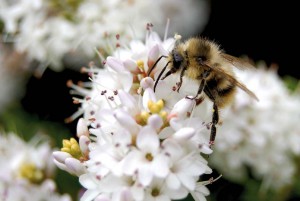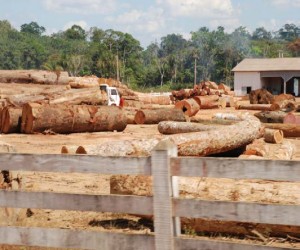MONDAY, 3 FEBRUARY 2014
The loss of biodiversity is occurring at a rate which leaves conservationists reeling. 70 per cent of fisheries are overfished, tropical dry forests are in decline and extinction rates are faster than ever. But why is biodiversity worth conserving? Ethically, there are many arguments, some rooted in religion, others in culture. Many believe that organisms have an intrinsic value that cannot be determined financially. However, in our economically driven society it seems this is not enough. To convince those who need convincing, the monetary value of biodiversity needs to be calculated.Global markets such as food, biotechnology and ecotourism profit hugely by direct use of natural resources. $87 billion worth of natural products are sold each year in the US alone, many of which are unsustainably sourced. But is the cost of resource exploitation worth the profit? Research by Andrew Balmford and colleagues carried out in 2002 suggest it is far from it. They compared the total economic value of several ecosystems before and after conversion to farmland, and in every case they found that sites had greater monetary value before they were converted. One mangrove forest was worth a staggering 70 per cent more before conversion to a shrimp farm. When taking into account the indirect benefits of healthy ecosystems, ranging from nutrient cycling to the generation of rainfall patterns, their total value is estimated at a staggering $33 trillion.
Conservation can also directly benefit commercial enterprise. In 2003 it was shown that the yield of coffee beans from the South American plants Coffea canephora and C. arabica was increased if there was a higher diversity of visiting bees. This occurred when the coffee plantation was close to a forest, where bee species diversity is highest. This finding suggests that the conservation of even a small patch of forest would significantly increase the value of the coffee harvest - an attractive prospect for an industry worth around $70 billion. Despite this, deforestation is still a huge problem affecting South American rainforests where most of the world’s coffee is grown.
Although the overall economic benefit of conservation is much higher than exploitation, these benefits are often external to the potential profiteers. For businesses, long-term benefits extending to the community provide less of an incentive than immediate private profit. The American ecologist Garrett Hardin described this social-private conflict as the ‘tragedy of the commons’. He imagined an unregulated area of common ground shared equally by several sheep herders. One herder would quickly realise that if they put one more sheep on the common they could produce more wool. This herder would gain high private benefit with only a slight reduction in grazing for the other sheep. Soon, each herder would do the same, and the common resource would become depleted. In this way, selfish interest can act contrary to community benefit, such that, in the end, everyone is worse off.
Another main problem is caused by ‘perverse subsidies’. These are sums of money given to failing industries by the government to help overcome their financial problems in the marketplace. Despite the economic and ecological adversity of these industries, costing a global estimate of $2 trillion annually across the top six most subsidised areas (farming, fisheries, forestry, energy, water and transport) a government that cut them would become very unpopular. Perverse subsidies, therefore, continue to fuel further investment into environmentally damaging practices.
Around $6.5 billion is annually put towards conservation yet this covers only 7.9 per cent terrestrial land and 0.5 per cent marine area. Balmford and colleagues calculated that redirecting less than 5 per cent existing perverse subsidies could fund a globally effective conservation network. With a rapidly growing human population, it is essential that we think more carefully about how we can provide for our future. A change in policy and attitude is needed. Without conserving essential pollinators, rare plants that could cure diseases, or forests that generate rain patterns we might soon see the real cost of foregoing global benefit for private profit.
Martha Stokes is a 3rd year Natural Scientist at Christ’s College


